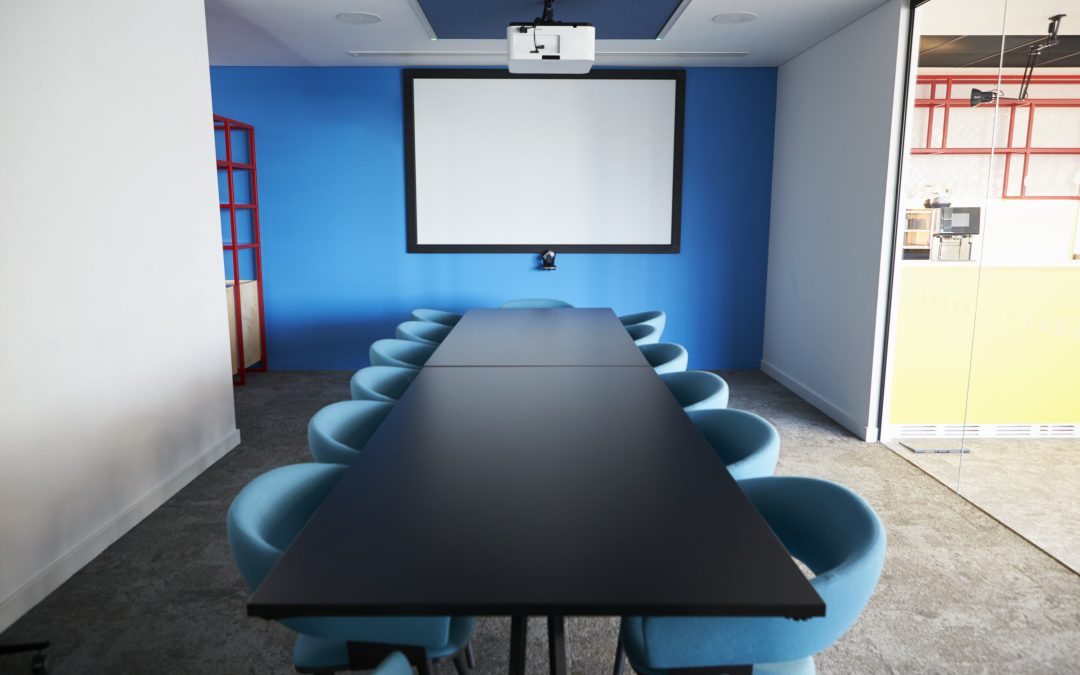Office hoteling, aka hotelling, is a type of office management wherein workers get to schedule the use of workspaces dynamically including cubicles, offices, and desks. This approach works as an alternative to the traditional way of seats that are permanently assigned to an individual or individuals. Hoteling office space helps employees reserve a specific workspace before they arrive for work. This method of reserving a workspace is also called hot desking but does not involve reservations and the employee chooses the workspace once he/she arrives instead of reserving it. However, you should also know that the use of the terms hot desking and hoteling are on the decline in modern times, with the emergence of Coworking spaces.
Embrace the freedom of flexible workspaces, where office space hoteling unlocks the true potential of collaboration, innovation, and adaptability
Hot desk vs. Hoteling
The manner in which employees can access the desk in workspaces is the major difference between hoteling and hot desking. Hot desking allows employees to access the desks on a first-come first served basis while a reservation is essential with hoteling. Although in many instances hot desking and hoteling are considered synonymous, these terms should not be interchangeably used. Hoteling represents unassigned seats allotted on the basis of reservations, while hot desking does not call for a reservation.
With the advent of Coworking spaces, hot desking has lost its appeal with the users since people do not know where they will work when they report to the office or even whether they will get a desk at all. Hoteling on the other hand has adopted centralized scheduling for more effective space management so that users can benefit from the advance reservation of their workspace. This way, users are guaranteed of their space to work and enhance their productivity while ensuring economy and flexibility.
Typical users of hoteling office space
Increased mobility of workers has contributed in a large measure to the adoption of hoteling office space as an economical and viable option for many segments. For instance, consider employees who travel for 15 or 20 days in a month and need a workspace just for a few hours on a couple of days across the month. These employees can reserve their desks for just the days they intend to work out of an office desk. Thus, the same office space can be effectively used by many employees in a month saving significant costs to the employer. The early adopters of hoteling office space as far back as the 1990s were accounting firms and consulting firms.
For certain work roles, hoteling is more appropriate
Hoteling works better for certain work roles compared to others. For example, hoteling office space may not be best suited for roles like print shops, graphic rooms, reception desks, etc. Therefore, while choosing hoteling office space, enough attention should be paid to the roles for which such workspace is chosen.
Integrating technology
In modern times, integrating information technology into office space hoteling can pay rich dividends. With the effective integration of technology, users can access essential information with just the click of a few buttons and make their reservations instantly. Technology integration will further help in managing other workplace functions like ID badges, logging in from remote locations, ensuring quick access and easy reservations, choosing a workspace, and more.
Cost saving drives the hoteling office space
The past few decades have witnessed a paradigm shift in how the world perceives work and what work is. Adoption of the hoteling office space has been driven by the cost saving it offers. The ever-spiraling price of commercial real estate in metropolitan cities and tier II and tier III cities, act as a significant driver for the adoption of hotelling office space, by individual users and larger organizations alike. Although consulting firms and large companies offering 24×7 customer services were early adopters of hoteling office space, the explosive growth of the information technology sector across the globe has opened up many new vistas.
Benefits of hoteling workspaces
Hoteling workspaces deliver several benefits to users as well as the service providers. For instance, an airline company does not expect all available seats on every single flight to be taken. Similarly, a car rental company may have 50 or more cars but not all their cars are expected to be rented out every day. Hoteling office space consistently presents an image of the available space being in demand always. Hoteling workspaces allow more employees or members to be accommodated in a smaller floor area. This will also allow the workflow to be reconfigured and leave the open spaces for collaboration between on-site employees.
Enhanced networking opportunities
Hoteling workspaces allow members to work from different locations giving them the freedom to collaborate and network with more people sharing their interests and pursuits. When hoteling workspaces also offer multi-location workspaces across cities and towns it further enhances the value for members. Members can further enjoy the smart office experience as opposed to the assigned desk in traditional office spaces. With the proper deployment of technology, hoteling workspaces can also exploit modern office tools like cloud storage, messaging services, and communication so that members are kept in the loop irrespective of their physical location.
Enhanced morale
With members getting the opportunity to share their views on how open spaces can be organized, and individuals and teams providing inputs on how best to execute a plan, the team morale gets a big boost. Loyalty from engaged employees gets a shot in the arm when they acknowledge that they are working towards a collective goal.
Explore all that we have on the platter
We have an impressive suite of workspaces to cater to every need. You can be a freelancer or a corporate client looking for a dedicated floor and we will cater to your exact needs. Get in touch with us today.






